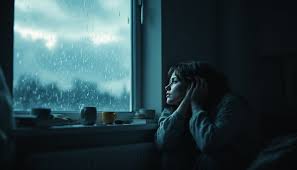
Unseen, Unspoken, Unhealed: The Quiet Crisis of Mental Health
In a world that moves fast, demands more, and rarely gives us time to pause, the importance of mental health often gets drowned out. We are constantly connected, constantly watching, scrolling, comparing, building, breaking, and trying again. But in the middle of all this motion, one thing quietly suffers — our minds.
Mental health is one of those topics that many people know exists, but few are truly ready to face. It’s not something you can see in an X-ray. It doesn’t always come with a bandage or a clear wound. And yet, for millions of people, it’s a daily reality — silently affecting how they think, how they live, how they love, and how they dream.
You see, mental health is not just about disorders or diagnoses. It is not limited to people who have been to therapy or those who have faced extreme trauma. It’s about every single one of us — about the boy in high school struggling to feel like he belongs, the young woman working two jobs while carrying invisible grief, the content creator who makes the world laugh but cries alone in silence, the single mother holding her world together with prayer and perseverance, and the man who hasn’t smiled in months but hides behind a strong voice and tired eyes.
Mental health is as real as the heartbeat in your chest. It’s as real as hunger, as real as pain. It shapes how we see the world, how we react to it, and how we relate to ourselves and others. But somehow, it continues to be misunderstood, neglected, or treated like a taboo topic in many communities — especially in places where survival is already a daily challenge.
Growing up, we were told to be strong. To hold it in. To "man up," to "stop being dramatic," to "just pray about it," or "sleep it off." But nobody told us what to do when sleep wouldn’t come. Nobody taught us how to handle the weight that sits on your chest when the world gets too heavy. Nobody prepared us for those moments when you look in the mirror and feel like a stranger in your own skin.
Mental health isn’t a sign of weakness. It’s not something to hide or whisper about. It’s a vital part of being human — just like physical health. If your leg is broken, you go to a doctor. If your stomach aches for days, you seek help. So why should the mind — which controls everything else — be left alone to suffer in silence?
The truth is, many of us are walking around with wounds no one can see. We smile in photos, crack jokes, and post updates about our lives, all while carrying invisible pain that we don't even know how to explain. There are people who look like they have it all together but are falling apart inside. There are young people who are achieving big things, making their families proud, and still battling anxiety that keeps them up at night. There are parents providing for their families but feeling empty and unworthy inside. There are artists, leaders, teachers, and even health workers who encourage others but have no one to check in on them.
And it’s not just about sadness. Mental health includes a wide range of emotions and conditions — anxiety, depression, trauma, burnout, low self-esteem, emotional exhaustion, and even joy. Yes, joy. Because mental wellness also includes our ability to feel positive emotions, to be at peace, to love ourselves, and to feel safe in our own minds.
So why do we ignore it? Why do we wait until someone breaks before we pay attention?
One reason is stigma. In many cultures, especially in African societies, mental health is often misunderstood. People are quick to label others as mad, cursed, weak, or possessed. There’s shame attached to emotional vulnerability, and that shame keeps people silent. Imagine struggling with something so personal, so deep, and the only response you get is mockery or judgment. That silence becomes a prison — and too many people are locked inside it.
Another reason is lack of education. Many people simply don’t know what mental health is or what the signs of mental distress look like. They think depression is just being lazy or antisocial. They assume anxiety is just being nervous. They confuse mental breakdowns with bad attitudes. But the truth is, mental illness is complex. It can be triggered by trauma, stress, hormonal changes, abuse, loneliness, or even chemical imbalances in the brain. It doesn’t always make sense — and that’s okay.
Sometimes, people don’t seek help because they can’t afford it. Therapy, medication, or professional counseling isn’t accessible to everyone — especially in countries where mental health is not well supported by public health systems. And yet, support doesn’t always have to come from a clinic. It can come from safe conversations. From families that learn to listen without judgment. From schools that educate students about emotional well-being. From communities that stop shaming people who are struggling and start standing with them.
Mental health support can look like checking in on your friend who’s been quiet lately. It can look like journaling your emotions when they get too loud in your head. It can look like taking a break from social media because the comparison is killing your self-worth. It can look like setting boundaries with people who drain your energy. It can look like crying when you need to — and not apologizing for it.
You don’t need to be in a crisis to care for your mental health. You don’t need to wait until things get unbearable. In fact, the best time to build emotional strength is when you feel okay — so that when the storms come, you have tools to help you cope.
Take sleep, for instance. It’s one of the most underrated forms of mental health care. When your mind is tired, everything feels heavier. You become more irritable, more emotional, and less able to focus. Protecting your rest is not lazy — it’s wise.
Or think about exercise. You don’t have to become a gym rat to feel better. Simple movement — dancing, walking, stretching — can help release tension and boost mood. Your body and your mind are connected in ways we don’t fully understand, and what helps one often helps the other.
Then there’s the power of connection. We are social beings. We were not created to live in isolation, yet many people suffer quietly because they feel like no one will understand. Sometimes, the most healing thing you can do is talk to someone who listens without trying to fix you — someone who just holds space for your feelings to exist.
And let’s not forget creativity. Music, art, poetry, storytelling — these are more than hobbies. They are lifelines. They give us a voice when words fail. They give us meaning when life feels confusing. They give us beauty in the midst of chaos. If you are a creator, never underestimate the healing power of your gifts — not just for others, but for yourself.
The conversation about mental health needs to be normal. It needs to be in our homes, in our churches, in our schools, and in our workplaces. We need to teach our children how to name their emotions, how to ask for help, and how to support each other without shame. We need to encourage men to speak up without being called weak. We need to show women that being strong doesn’t mean suffering in silence. We need to create cultures of care, not criticism.
And if you’re reading this and you’ve been struggling — really struggling — I want you to know this: you are not alone. You are not broken. You are not too much, and you are not too far gone. You deserve help. You deserve peace. You deserve to feel safe in your own mind.
There is no shame in therapy. There is no shame in needing medication. There is no shame in taking a break. There is no shame in asking for help. Healing is not linear. Some days you’ll feel great, other days not so much. But every step you take matters — even the small ones.
Mental health is not just for the privileged. It’s not just for people in big cities or developed countries. It’s not a Western concept or a modern trend. It’s a human need — one that every soul deserves to have met.
So today, let’s make space for these conversations. Let’s check on each other — really check. Let’s stop telling people to “get over it” and start asking “how can I support you?” Let’s be the kind of people who make others feel safe to be honest. Let’s be the kind of society that understands that true wellness includes the mind and the heart, not just the body.
You matter. Your story matters. Your mind matters. Let’s treat it with the care it deserves -and encourage others to do the same.
Post Comment
You need to be logged in to post a comment.




0 Comments
No comments yet. Be the first to comment!